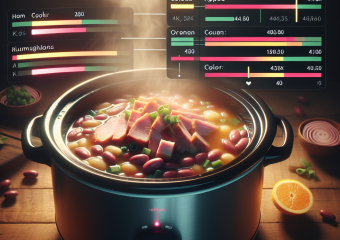From Breakfast to Dinner: Top Medical Body ICMR Reveals New Diet Guide For Women – NDTV Food
It is rightly said that “we are what we eat.” The food that we eat every day provides nutrition to fulfil the basic needs of our body and mind. But, for optimal functioning, it is important to cater to the special needs that vary from person to person. Consultant nutritionist Rupali Datta says, “This theory stands true, especially for women. From childhood to puberty to motherhood and menopause, a woman’s body undergoes constant changes. And to cater to that, it is equally important to modify the nutritional requirements.” Aligning with these thoughts, the Indian Council of Medical Research (ICMR) has recently come up with a sample dietary guide for women for their overall nourishment. These pointers are a part of ICMR’s recently released ‘2024 Dietary Guidelines for Indians’. Let’s take you through.
Also Read: Top Medical Body ICMR Dietary Guidelines 2024: Links Major Diseases In India To Unhealthy Diet

What Is A Balanced Diet? Why Do You Need a Balanced Diet?
A balanced diet is defined as a regime that is wholesome and nutritionally adequate. It provides a variety of micro and macronutrients for various functions of the body. The ICMR report states that these nutrients should be picked judiciously from a wide range of food ingredients. “Variety from wholesome foods is the key to achieving nutritional adequacy,” it reads.
Also Read: Low-Calorie Diet For Weight Loss Has Different Effects In Men And Women; Says Study

Why Do Women Require Proper Nutrition And A Balanced Diet?
As mentioned, a woman’s body undergoes various changes throughout her life, which makes it important to understand the needs at every stage and fulfil them accordingly. For instance, a woman always needs fewer calories than a man of the same age, height, and physical activity. As per experts, this happens because a woman’s body has a higher fat percentage as compared to a man who has higher muscle mass. This is why you will always find the Basal Metabolic Rate (BMR) for a woman is lower than a man, further defining the need for a balanced diet regime.

Photo Credit: Freepik
ICMR’s Sample Dietary Guide For Women:
The top medical body of India prepared a sample of dietary guidelines for women, who have a sedentary lifestyle, with adequate physical activities. The meal suggested here provides a total of 1660 kcal per day, however, the requirements may vary from person to person, depending on their body weight and physical activities.
Also Read: How Drinking Tea Without Milk Could Benefit You, As Per Top Medical Body ICMR

Meal 1. For Breakfast (between 8-10 am):
ICMR suggests having a meal that includes soaked and boiled whole grains, boiled black or red beans, lobiya (black-eyed peas), chickpeas, green leafy vegetables, and nuts. This complete meal provides a kick of 470 kcal in the morning.

- Soaked/boiled whole grains – 60g
- Boiled red/black beans, lobiya (black-eyed peas)/chickpeas – 30g
- Green leafy vegetables – 100g
- Nuts – 20g
Meal 2. For Lunch (between 1-2 pm):
In the afternoon, you can go for whole grains, vegetables cooked with nuts/seed oils, dal, meat, curd, and fruits at the end. ICMR states that this meal provides 750 kcal per day.
- Cereals (preferably whole grains) – 80g
- Pulses/meat – 20g
- Vegetables – 150g
- Leafy greens – 50g
- Nuts/seeds oil – 10-15g (in cooking)
- Curd/paneer – 150ml
- Fruits – 50g (end of meal)
Meal 3. For Evening Snacks (at around 5 pm):
You can always have a glass of milk to provide your body with a jolt of energy. 50 ml of milk provides 35 kcal in a woman’s body, reads the ICMR report.
Meal 4. For Dinner (between 7-8 pm):
The report states that much like your lunch, the dinner can also comprise cereals, dal, vegetables cooked in nuts/seeds oil, curd, and fruits, providing a total of 415 kcal per day.
- Cereals – 60g
- Pulses – 15g
- Vegetables – 50g
- Oil – 5g
- Curd – 100ml
- Fruits – 50g (end of meal)
Alongside this, the ICMR guidelines highlight the need for a good sleep pattern, physical activities, and lower salt, sugar, refined oil, carbonated drinks, and caffeine consumption for improved health conditions.
Eat healthy, and stay fit!




